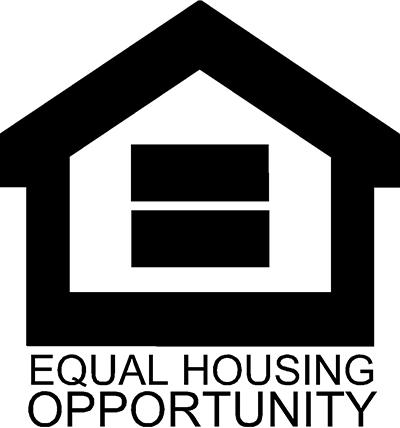Housing Voucher Programs
Acquiring a Voucher
The Division of Housing administers the following Housing Voucher Programs via our partners throughout the state. Please contact your local Public Housing Authority or county regarding the latest housing vouchers available to you. The Division of Housing does not maintain an active list of providers.
Housing Choice Voucher (HCV) Program
The Housing Choice Voucher (HCV) program provides tenant-based subsidies for rents paid by low-income households based upon their income. A housing subsidy is paid to the landlord directly by the department on behalf of the participating family. The family pays the difference between the actual rent charged by the landlord and the amount subsidized by the program. Under certain circumstances, if authorized by DOLA, a family may use its voucher to purchase a home.
The division also provides resources and services to HCV contractors accessed through the menu items on the left.
This program, once Section 8, helps low-income Coloradans rent affordable housing. The Division of Housing contracts with public housing authorities and non-profit organizations to run the HCV Program. Vouchers are given by those agencies, not the Division of Housing. Tenants receive funding based on their income and can choose any type of housing including apartments, townhomes and single-family homes.
Family Unification Program (FUP)
DOLA partners with the Colorado Division of Child Welfare and local service providers to administer this unique housing choice voucher program to assist Households involved in child welfare. These vouchers can serve both families and youth headed households. Family vouchers are reserved for families where housing is an obstacle to retaining or regaining custody of their children. Youth vouchers are for homeless youth aging out of the foster care system (ages 18 through 24).
Project Based Assistance (PBV)
This program allows the department to use up to 20 percent of its budget authority to subsidize specific units in designated buildings targeting populations needing supervision or a structured setting.
Veterans Affairs Supportive Housing (VASH)
The Veterans Affairs Supportive Housing (VASH) program is a national initiative sponsored by the HUD and the U.S. Department of Veterans Affairs (VA). The goal of the VASH program is to provide housing choice voucher rental assistance and intensive case management and clinical services to enable homeless veterans access to permanent housing while leading healthy, productive lives in the community.
Continuum of Care Permanent Supportive Housing (CoC PSH)
The Continuum of Care Permanent Supportive Housing (CoC PSH) program provides rental assistance and access to supportive services for individuals, youth, and families experiencing homelessness and have an identified disability verified by medical professionals. Referrals are available through regional Coordinated Entry systems to ensure households with the greatest need and/or barriers to housing stability are prioritized for rental assistance. CoC PSH allows for a variety of housing choices and access to a range of community-based supportive services based on the individualized needs of participants. Tenant support-service include but are not limited to public benefits acquisition, life skills training, employment training, childcare, and transportation to name a few.
The Family Self Sufficiency (FSS) program
Family self-sufficiency (FSS) is a HUD program that encourages communities to develop local strategies to help voucher families with employment. Public housing agencies (PHAs) work with welfare agencies, schools, businesses and other local partners to develop a program that gives FSS family members the skills and experience to earn a living wage.
Financial Literacy Exchange (FLEX) Program
Colorado House Bill 2022-1389 establishes the Financial Literacy and Exchange (FLEX) program. FLEX is based on the federal Family Self-Sufficiency (FSS) program. It is designed to help households achieve financial security through education, employment, investment, housing stability, and social maturity, which is accomplished through (1) a financial incentive for participants to increase their earnings in the form of an escrow-like savings account and (2) case management and financial coaching. FLEX is a voluntary program for eligible households participating in State-funded voucher programs.
Section 811
The Section 811 PRA program provides project based subsidies to assist very low income people with significant and long-term disabilities so that they may live independently in the community by providing affordable housing linked with voluntary services and supports. The Section 811 program is similar to the Section 8 Housing Choice Voucher Project Based Voucher program. Section 811 PRA program units will be made available for people with disabilities who are leaving institutions or for people with disabilities at risk of being placed in an institution (including those who are homeless and those at risk of being homeless).
Community Access Team Vouchers (CATV)
DOLA works in partnership with the Department of Health Care Policy and Financing (HCPF) to administer CATV. The goal of CATV is to move persons with disabilities out of nursing homes and other long term care and into the community, and to prevent people with disabilities from being placed in an institution due to a lack of housing they can afford. Referrals to the program come from HCPF's Transition Services and Supported Living Services Waiver benefit programs.
- Community Access Team Vouchers application packet and other forms.
Mental Health, Homeless Solutions Program, and Recovery-Oriented Housing Program State Housing Vouchers (MH-SHV, HSP-SHV, & ROHP-SHV)
The Mental Health – State Housing Voucher (MH-SHV), Homeless Solutions Program – State Housing Voucher (HSP-SHV), and Recovery-Oriented Housing Program – State Housing Voucher (ROHP-SHV) programs provide long-term rental assistance and access to supportive services for extremely low-income persons (and their households) with a disabling condition and a history of homelessness. Preference is given to households with frequent and/or high utilization of public systems. Referrals are primarily available through regional Coordinated Entry systems, Colorado Department of Human Services' Division of Youth Services and Office of Behavioral Health, and other entities serving persons who need long-term supports and services in order to maintain housing.

